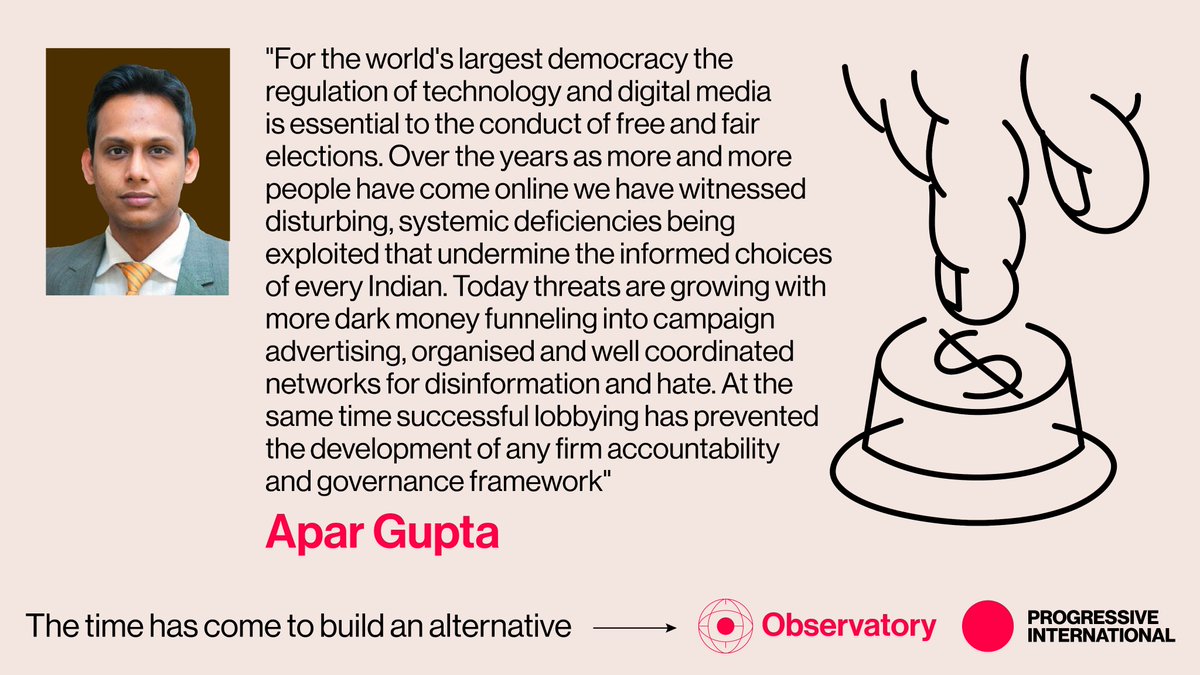
#HearingUpdate! The Delhi HC issued notice on an intervention application by 7 social science researchers in the copyright case filed by large publishers trying to block LibGen & SciHub.
IFF represented the researchers in the intervention application. 1/8
internetfreedom.in/social-science…
IFF represented the researchers in the intervention application. 1/8
internetfreedom.in/social-science…
Elsevier, Wiley and American Chemical — 3 large corporate media houses — have sought to have LibGen and SciHub blocked in India on grounds that these websites infringe copyright in works owned by them.
But any such blocking will seriously impact the rights of researchers. 2/8
But any such blocking will seriously impact the rights of researchers. 2/8
Research in India is entirely dependent on community access to resources & materials and the knowledge commons.
Especially in universities where libraries are unable to provide access to all the books and journal articles that researchers need — even more so in the pandemic. 3/8
Especially in universities where libraries are unable to provide access to all the books and journal articles that researchers need — even more so in the pandemic. 3/8
7 social science researchers from universities in Delhi have filed an intervention application in this case to assert their rights & provide support to the defence of LibGen + SciHub on grounds that the use of materials available on these websites falls under “fair dealing”. 4/8
“Fair dealing” is a right of users under the Copyright Act to use materials in their research and in the course of teaching (among other things). It does not constitute infringement.
In fact, a Delhi HC decision has linked this with the fundamental right under Art. 19(1)(a)! 5/8
In fact, a Delhi HC decision has linked this with the fundamental right under Art. 19(1)(a)! 5/8
This intervention application was listed before a Joint Registrar of the Delhi HC today, who issued notice on the application.
The Plaintiffs were directed to file their reply to the application within 4 weeks, and the matter was posted for 18.02.2021. 6/8
The Plaintiffs were directed to file their reply to the application within 4 weeks, and the matter was posted for 18.02.2021. 6/8
We thank IFF lawyer @VrindaBhandari for representing the researchers in court today, and the rest of the team comprising @abhinavsekhri10, @TanmayPratapS, @krishnesh78, @sheisanandita and @NatashaMaheshw3.
We also thank the social science researchers for taking a stand. 7/8
We also thank the social science researchers for taking a stand. 7/8
This is not a simple copyright or a purely commercial matter.
Blocking LibGen / SciHub will severely impact individual researchers, and the entire landscape of research-based education in India.
Help us advocate for your rights! Keep us going. 8/8
internetfreedom.in/iff-needs-your…
Blocking LibGen / SciHub will severely impact individual researchers, and the entire landscape of research-based education in India.
Help us advocate for your rights! Keep us going. 8/8
internetfreedom.in/iff-needs-your…
• • •
Missing some Tweet in this thread? You can try to
force a refresh





